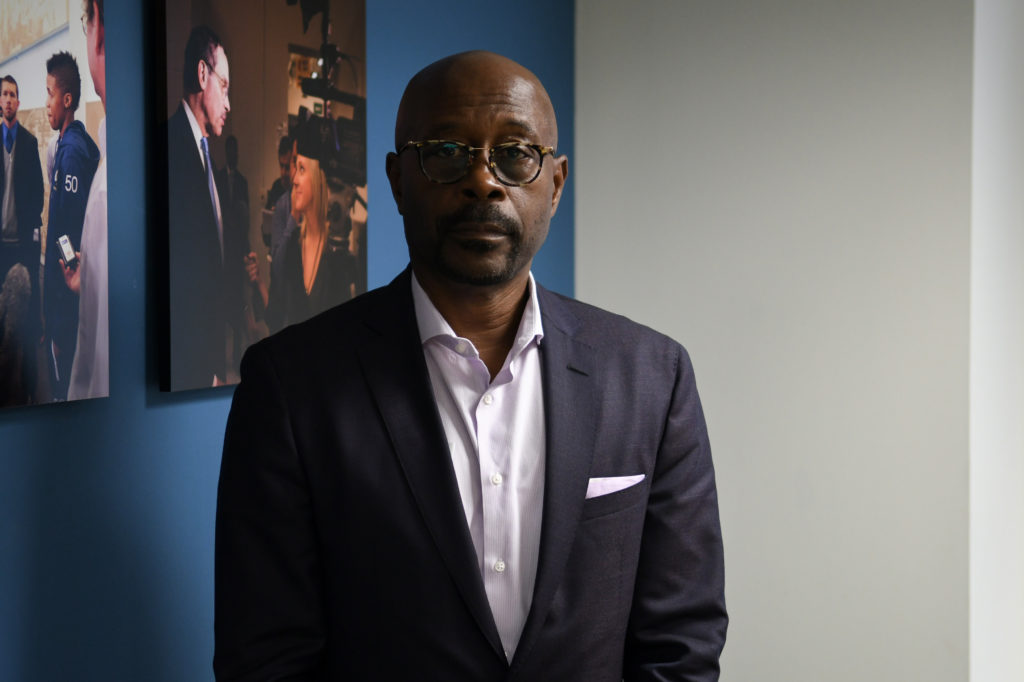The University has stayed hush on the circumstances surrounding the departure of the leader of the GW Police Department.
Darrell Darnell, the senior associate vice president for safety and security and the superintendent of police, has exited his position at least temporarily, University spokeswoman Maralee Csellar confirmed last week. But nearly a week after the news broke, officials have refused to answer more than a dozen questions seeking details about the leadership change and have yet to issue a formal University release informing the community.
Csellar confirmed Tuesday that Darnell has left his position but declined to say when. She said Assistant Chief of Police Mary Paradis is currently serving as the interim chief of the department, and a review of the Division of Safety and Security is being conducted.
Csellar declined to answer 14 follow-up questions about both Darnell’s departure and the review of the division. She declined to say when Paradis took over as interim chief of police and why she took the position. Csellar declined to elaborate on the circumstances of Darnell’s departure, including whether he had been let go, fired or suspended.
She declined to say whether the University expects Darnell to return to his post and if so, when. She declined to say whether any other staffing changes have been made in the Division of Safety and Security over the past month.
Csellar declined to say who is conducting the review of the division, when the review commenced, what it entails and why it was launched. She declined to say when officials expect the review to conclude, how the University plans to use the findings and whether GW plans to implement structural or staffing changes in the division.
Paradis is the fourth person to lead GWPD since January 2018. Former GWPD Chief RaShall Brackney suddenly resigned at the start of the year, and interim chief Bessie Burrus was replaced by Darnell in April. Csellar declined to say how the review will assess the University’s decision to hire Darnell instead of finding a new police chief.
A GWPD officer, who spoke on condition of anonymity for fear of retribution from the University, said the department was informed about three weeks ago that Darnell would be on administrative leave for two weeks. The officer said there has been little formal communication about the circumstances surrounding Darnell’s departure, but rumors have been circulating around the department.
“Everyone here does not believe he’ll come back,” the officer said.
The officer said Darnell was not popular among GWPD officers and employees because he didn’t let officers “perform all of our duties,” like arrest members of the GW community.
The officer said the International Association of Campus Law Enforcement Administrators is conducting the review of the Division of Safety and Security to determine whether GWPD should keep its accreditation. Accreditation is formal recognition that a department follows the “highest professional standards,” according to IACLEA’s website.
The officer said the review will include interviews and ride-alongs with officers.
Another GWPD officer, who also spoke on condition of anonymity for fear of retribution from the University, said GW has not offered the department an explanation for Darnell’s departure. But the officer said the department has generally reacted positively to the leadership change because Darnell allegedly could not effectively communicate with employees.
He said Darnell has been GWPD’s “worst chief” and brought morale to its “lowest” point.
“If you’re accused of anything in his eyesight, you’re guilty, and he would try to fire you,” the officer said. “I guess he’s trying to act like he’s doing his job, but he doesn’t care about the officers, he only cares about himself.”
The Hatchet reached out to Darnell via phone, email and two social media profiles. He did not return multiple requests for comment.
Brackney, the former head of GWPD, said leadership changes in police departments could be linked to a variety of circumstances, but all turnover can “rock the foundational core of a police department.”
“A lack of stability leads to uncertainty as the rank-and-file officers attempt to manage every changing internal expectation with the demands of policing,” she said in an email. “In addition, the communities served by departments undergoing continual changes in leadership are not able to build a sense of rapport and trust within the communities.”
Brackney declined to say why she departed from GW.
Cayla Harris contributed reporting.





